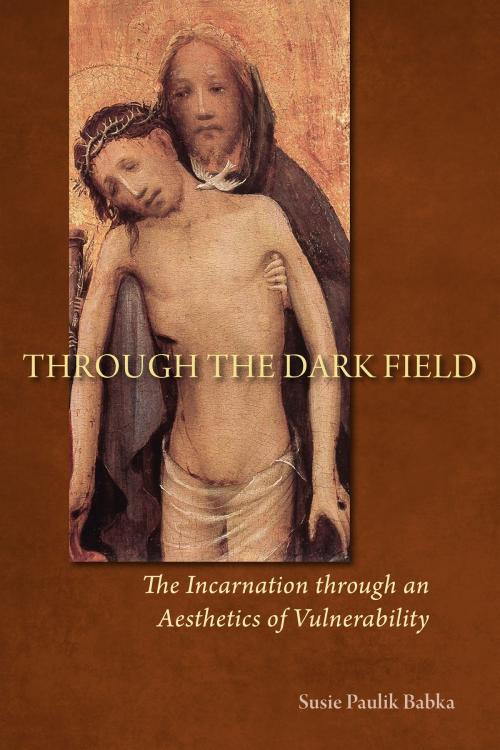Through the Dark Field
The Incarnation through an Aesthetics of Vulnerability
Nonfiction, Religion & Spirituality, Christianity, Christian Literature, Theology| Author: | Susie Paulik Babka | ISBN: | 9780814680988 |
| Publisher: | Liturgical Press | Publication: | January 13, 2017 |
| Imprint: | Michael Glazier | Language: | English |
| Author: | Susie Paulik Babka |
| ISBN: | 9780814680988 |
| Publisher: | Liturgical Press |
| Publication: | January 13, 2017 |
| Imprint: | Michael Glazier |
| Language: | English |
Theological discourse in the West has consistently valued the word over the image. Aesthetics, which discerns the criteria and value of the beautiful and what "pleases the senses," is the discipline that prioritizes sensual intelligence over the rational; this book advocates a reconsideration of the doctrine of the incarnation through an aesthetics of vulnerability, in which the ethical optics of attention to the vulnerable other becomes the standpoint in which to ponder the significance of "God became human." Relying on such diverse thinkers as Emmanuel Levinas, Maurice Blanchot, Karl Rahner, and Masao Abe, Susie Paulik Babka explores visual art, images, and poetry as theological sources, designating what Blanchot called "a region where impossibility is no longer deprivation, but affirmation."
Theological discourse in the West has consistently valued the word over the image. Aesthetics, which discerns the criteria and value of the beautiful and what "pleases the senses," is the discipline that prioritizes sensual intelligence over the rational; this book advocates a reconsideration of the doctrine of the incarnation through an aesthetics of vulnerability, in which the ethical optics of attention to the vulnerable other becomes the standpoint in which to ponder the significance of "God became human." Relying on such diverse thinkers as Emmanuel Levinas, Maurice Blanchot, Karl Rahner, and Masao Abe, Susie Paulik Babka explores visual art, images, and poetry as theological sources, designating what Blanchot called "a region where impossibility is no longer deprivation, but affirmation."















